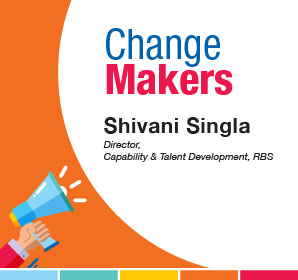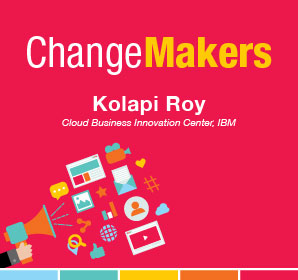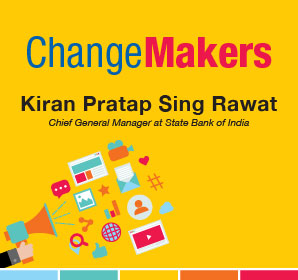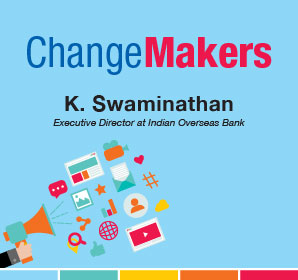This article is about Banking and Finance
BFSI SEctor - An Overview of the NBFC Industry
By NIIT Editorial
Published on 09/04/2020
8 minutes
The Non-Banking Financial Companies (NBFCs) comprise a whole host of institutions that offer nearly all banking services except for issuing self-drawn checks and demand drafts. Acting as financial intermediaries they can raise funds from the public, be it directly or indirectly, and process loans to parties with pay-back capacity. This group could include businesses such as wholesale/retail traders, small and medium enterprises, or self-employed individuals. NBFCs are viewed as an extension of the banks, more often than not providing financial assistance with a customer-first motto. Although banking in nature, it is important to distinguish between an NBFC and a bank:
- NBFCs offer banking services but don’t have a banking license
- In the absence of a banking license, they are not liable to hold reserve ratios, unlike the banks.
- They cannot accept demand deposits from the public
- NBFCs are not covered under the Payment and Settlement Systems Act, 2007 (PSS Act) of India.
- Their primary mode of occupation cannot be an agricultural project, industrial activity, sale, and purchase, or even construction of immovable property.
NBFCs are governed under the regulations set by the Reserve Bank of India. Such regulations further demarcate the dos and don’ts for such financial institutions and provide a blueprint for their business practices. For instance, NBFCs are not allowed to outsource business functions that make up the spine of their internal operations. This includes internal audits, portfolio and investment management, approving loans, and compliance measures that ensure standard KYC practices.
Structure of the NBFC Segment in India
This sector comprises financial entities that offer diverse variations of financial instruments. Their business model ranges from managing consumer wealth to disbursing capital and much more.
Let us closely examine the types of NBFC institutions that we have in India:
- Collective Investment Companies
The primary objective of such companies is to pool public capital and strategically invest in the most promising projects to turn a profit. They include the following types of enterprises:
- Asset Management
They attract pooled capital from clients to invest in financial instruments such as the stock market (shares, bonds, etc.), and upcoming real estate projects bringing in the loop the working class as their customer. Asset management companies at large, source high net worth individuals and convince them to commit impressive sums of money into investment schemes. In addition to managing hedge funds, and pension plans, asset management envelopes the larger societal middle-class bracket by creating long-term saving prospects of mutual funds, index funds, and exchange-traded funds.
- Venture Capital Financing
Private Equity is an investment fund that purchases a majority stake (controlling shares) in a business that is not publicly traded and works towards restructuring the company for an appreciated ROI. Venture capital firms are a modern-day extension of traditional private equity institutions where investment banks and ultra-rich investors lend money to fledgling companies to accelerate growth. Venture capital companies aim to mark-up the valuation of the company and exit the business having earned at 3 to 4 times multiple on their initial investment.
- Alternative Investment Funds
Such funds are accessible to well-off individuals and unregulated by legal institutions. As the name suggests, they offer alternatives to commonly available investment opportunities in the form of derivatives contracts, managed futures, commodities trading, and art and antiques to name a few.
- Credit Rating Agencies
These are institutions that calculate and rate a borrower's ability to pay the borrowed principal as well as the interest under a specific period. Models to assess credit-worthiness become complex as we go from individuals to institutions or even governments. Standard & Poor’s (S&P) and Moody’s are some recognized credit rating agencies that evaluate organizations and world governments.
- Exchanges
An exchange is an organized and regulated marketplace where financial securities such as commodities, futures, derivatives, and foreign exchange are traded. They are run by intermediaries such as brokers and dealers who buy and sell the securities on behalf of retail/institutional investors. They are classified into the following types based on security:
- Stock Exchanges
They are the foremost threshold to purchase stocks, bonds, and shares in addition to other financial instruments. The dividends earned overtime on such securities are also payable through the stock exchange. The stocks could be issued by companies officially listed on that exchange, bonds, derivatives, and unit trusts. Exchange trading is influenced by order matching, i.e. the buyer bids for a particular security and when the seller accepts the bid-offer, the trade-off takes place. Examples include the Bombay Stock Exchange (BSE), and the National Stock Exchange of India (NSE).
- Commodities Exchange
It is a marketplace where commodities are traded. The list of commonly traded commodities includes edible (agricultural) products such as barley, wheat, maize, milk, coffee, in addition to metals and oil. The mode of trading varies from spot trading for on-the-spot delivery to forwards, futures, and options and derivatives.
- Currency Exchange
Business entities that deal with foreign currency exchange rates are accorded the legality to exchange one currency for another. Their mode of operation varies on who operates a business. In moderate economies, such businesses could have standalone official centres. A currency exchange could have a chain of service booths for over the counter operations. At airports, large banks branch out to service to capitalize on traveller needs.
- Broker
Brokers represent the buy-side and the sell-side in a security transaction. Financial instruments are best purchased following the counsel of an advisor and the assistance of a broker. For instance, professionals who place buy and sell orders for public shares listed on the stock market, act as brokers.
5. Investment and Credit Company (ICC)
As per the new RBI guidelines for NBFC, the ICC merges three former categories of NBFCs into one. Let us first understand these 3 categories:
- The first category is an asset finance company. These companies are engaged in providing financial support for the physical assets of a business. The assets could range from machinery, automobile, generators, tractors, etc. that give the business a monetary impetus.
- The second category is Loan Companies that advance financial assistance for activities other than their own, excluding equipment leasing.
- The third category is Investment Companies that are permitted by the RBI to purchase and sell securities.
The aforementioned categories have been merged into Investment and Credit Company. The duties of the ICC stay collectively the same as they were for asset finance companies, loan companies, and investment companies.
6. Infrastructure Finance Company (IFC)
Such NBFCs have to deploy three-fourth of their assets towards infrastructural loans. Infrastructure could vary as follows:
- Transport – Roads, ports, inland waterways, airports, railway tracks, tunnels, bridges, and urban public transport.
- Energy – Electricity generation, transmission, and distribution, oil pipelines, oil/gas/LPG storage facility, and gas pipelines.
- Water & Sanitation – Solid waste management, water supply pipeline, water treatment pipeline, sewage collection, irrigation channels, and stormwater drainage system.
- Communication – Fixed networks for telecommunication, and towers
- Social and Commercial Infrastructure – Education Institutions, Hospitals, 3-star or higher category hotels situated outside cities with a population over 1 million. It also includes common infrastructure for industrial parks, capital investment for fertilizers, post-harvest storage infrastructure for agriculture, soil-testing laboratories, and terminal markets.
7. Infrastructure Debt Fund: Non-Banking Financial Company (IDF-NBFC)
They provide long-term debt for infrastructure projects by raising funds through Multiple Currency bonds of (at least) 5-years maturity. The law states that only Infrastructure Finance Companies have the legal capacitance to sponsor IDF-NBFCs.
8. NBFC-Factors
Such non-banking financial companies are heavily involved in the business of factoring. In finance, factoring is a classification of debtor finance wherein a business can sell its invoices to a third-party vendor (referred to as a factor) at a discount rate.
9. Residuary Non-Banking Companies (RNBCs)
The core nature of such companies is receiving fund deposits. They operate as long as their principal business is accepting deposits from schemes, and agreements and not be a loan company, make investments, or finance asset creation. On term deposits, they offer a rate of interest of 5% per annum and 3.5% on daily deposits, compounded annually. RNBFCs are not allowed to accept deposits for more than 84 months and less than 12 months. The law inhibits their power to promote deposits by gifts or incentives. Furthermore, the deposits made with them are not payable on demand.
10. Account Aggregators
This class of Non-Banking Financial Institutions was legalized by the Reserve Bank of India in 2016. Account Aggregation refers to the process of compiling and consolidating data from multiple sources (accounts) such as investment accounts, bank accounts, credit card accounts, or consumer/business accounts. As per RBI guidelines, account aggregators should offer such services to financial institutions having sought customer consent. As of writing, seven account aggregators have procured in-principle approval from the Central Bank in India with one of them in the penultimate phases of going live.
The overall NBFC sector is projected to grow at 10-12% for the financial year 2020. The industry has serious government attention with steps to up consumer confidence while maintaining secure and transparent channels for customers to avail NBFC services.
PG Diploma in Sales and Relationship Banking
An online blended learning programme for graduates that gives you a job as a Value Banker with ICICI Bank, India’s leading private sector bank.
Assured Job Opportunity*
Role as a Value Banker


















































































































































































































































































































































































































































































Reviewed on 27th July 2024